
Choosing Between a Gas or Diesel Coach
Choosing Between a Gas or Diesel Coach
Tips for deciding based on features you’ll need on the road.
By: Kenny & Sabrina Phillips
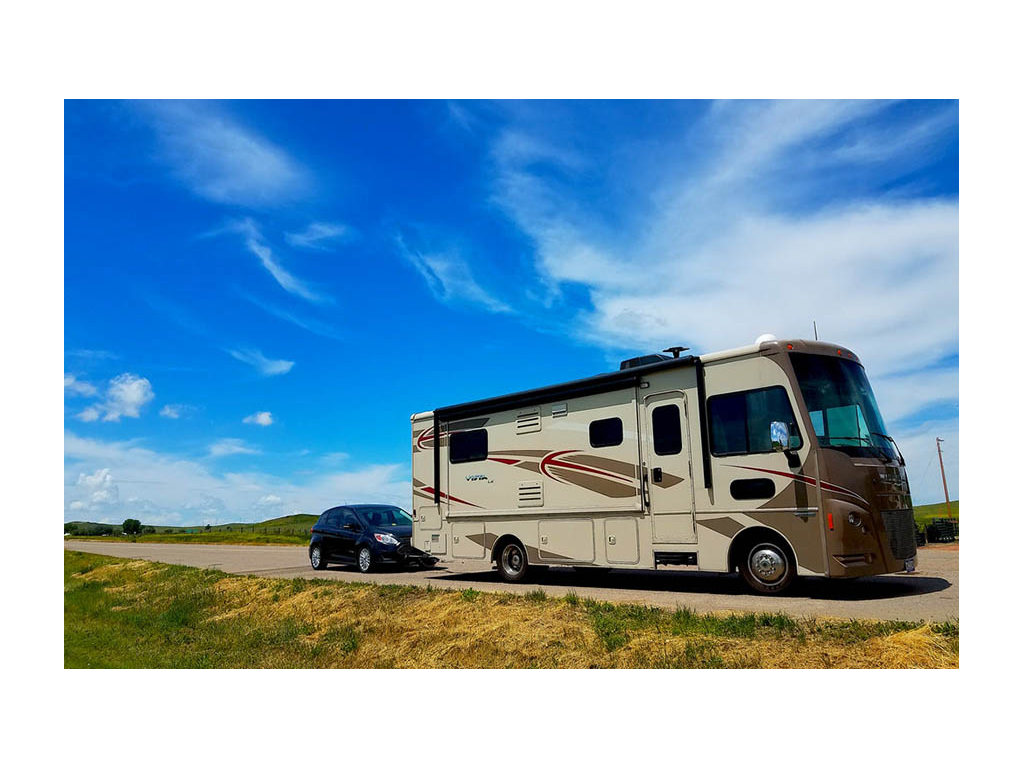
When Sabrina and I were shopping around for our RV we looked at everything from travel trailers to fifth wheels, Class Bs to Class Cs and, of course, Class As - which is what we finally decided on for our purchase. That, however, was not the end of the search, we still had one very big decision to make: would we choose a gas or diesel engine. We decided that gas was our best option which led to the purchase of our Winnebago Vista, but that does not mean that it is the best choice for everyone.
In this article, I am going to go over the benefits of each in hopes it helps you decide what is the best choice for you and the way you plan to travel.
Pros of a Gas Coach
Today’s Class A gas coaches are built on a Ford Chassis, the gas Class Bs use mainly Dodge and Ford while the Class C gas typically uses Ford and Chevy. The advantage to this is that it makes it very easy to find dealers and parts for these vehicles as you travel all over the country. Even in small towns, you are bound to find a Ford dealership. This can be a big deal when you need service in an area that you are not all that familiar with. While you are traveling, you will also find that getting fuel is easy - no need to plan a special route or search for fuel since every gas station sells gasoline. Although, finding diesel fuel is getting easier! Currently, only 55% of gas stations in the United States sell diesel fuel, but that number is growing. (According to diesel forum).
Yearly maintenance will be cheaper with the gas engine also. Oil changes for our Class A are normally under $100 and that includes greasing the chassis. We have heard from our friends who own diesels that oil changes have a wide range. They pay anywhere from $200 all the way up to $600 with some extreme cases seen in RV forums being more than $1,000.
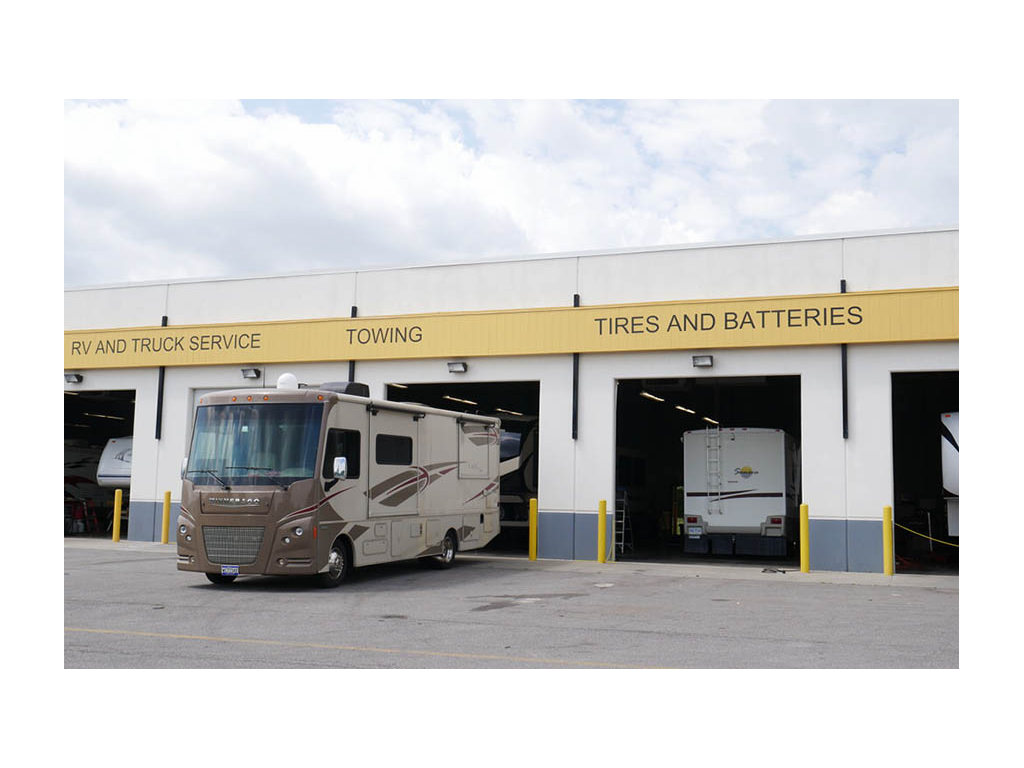
The most common reason people choose a gas coach is cost. A gas coach will cost considerably less than its diesel counterpart. With the money saved at the dealer, you could put that towards your travel fund and go on a crazy adventure. But I will say, you are getting a lot more than just the diesel engine for the price when you choose a diesel coach, as I’ll explain next.
Pros of a Diesel Coach
The first thing that comes to my mind with a diesel coach is power! With a diesel coach, you can typically tow much more than a gas coach. For example, a gas Class A typically can tow 5,000 pounds, whereas a diesel Class A can tow 10,000 pounds - and in some cases, like the Winnebago Horizon, 15,000 pounds.
Diesel coaches also usually have an upgraded chassis, allowing you to increase your cargo capacity. This not only helps you carry more items, but also makes it easier to load up the RV with family and not worry about going over your weight capacity. The upgraded chassis will provide a smoother ride as the suspension is usually an air-ride system that will help absorb a lot of the bumps and potholes in the road. It will also help keep you level while going around winding roads.
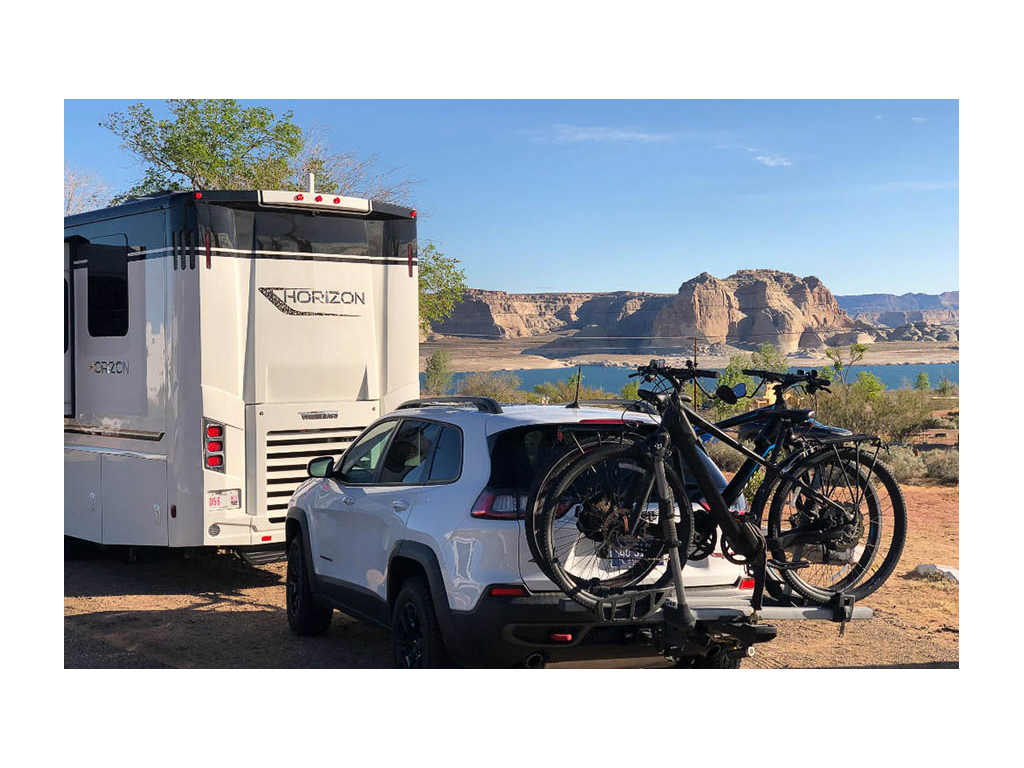
Winnebago Horizon photo by Don Cohen.
In the case of most diesel Class As, the ride will also be quieter because the engine is placed in the rear of the RV - hence the name diesel pusher. There are some occasions that a diesel Class A will have the engine up front, but it is rare. With the engine at the rear of the RV, it will keep your front cab area quieter since the roar of the engine during acceleration is further away. Of course, being able to brake is important as well. Diesel coaches will also come with air or hydraulic brakes giving you more stopping power.
Something else that comes to mind is that the interiors of diesel coaches often have higher-quality finishes and upgraded appliances, especially in the Class A department. The Winnebago Horizon is a great example of this. There is nothing traditional or standard with its sleek modern interior - it is sometimes hard to believe that you are standing in something that has wheels. It has a stackable washer and dryer, residential refrigerator, and even a dishwasher!
This is not to say that the Class A gas is not nice, Winnebago recently launched the Adventurer line which is a Class A gas coach with an interior that includes features usually reserved for the diesel coaches, like an electric fireplace, washer/dryer, residential refrigerator, and induction cooktop.
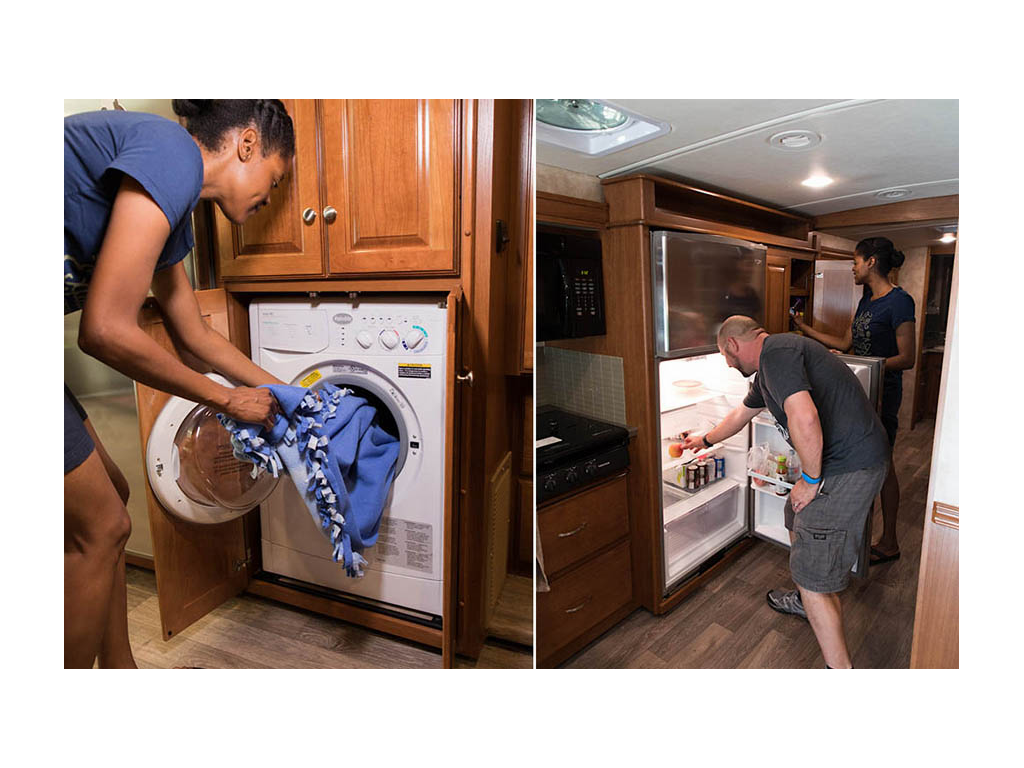
Adventurer features photos by Jon Bajuelo.
What Features Will You Need on the Road?
So, let’s talk about how you will be traveling and using your RV. Will you be going on long journeys or traveling around cities? How about high-grade mountain climbing while on the highway? Sabrina and I have found that with all the miles we do (more than 20,000 a year) we rarely do high-grade climbs, such as 7% grades or more. In those times, our gas engine does work harder to get us to the top, but it always makes it with no problem. In fact, we normally need to get into the passing lane to go around the big rigs. If 80% of your driving is going to be around town and not in the mountains, a gas coach will be plenty of power for you.
What if you want to tow a large vehicle though? We tow a Ford C-max which weighs under 4,000 pounds. So again, the gas RV works great for us. If you plan on towing a large 4X4 truck or SUV or maybe a large trailer loaded up with ATVs and other big toys, then you will want to go with a diesel since the engine, chassis, and transmission are all better suited for towing.
Common Questions We Get Asked
Believe it or not, the question we are asked more than any other since being on the road is what our gas mileage with our RV is and wouldn’t a diesel be better? We average between 7 and 8 MPG when towing our car and that is with all kinds of driving. A diesel coach will get better MPGs, but with the cost of diesel fuel currently being higher and the need to add DEF to the tank every 100 gallons, we feel this balances out and it almost becomes a wash.
The second question we are asked is do we feel our gas RV will last as long as we need it to when diesel engines last so many more miles? Our answer is yes. The Ford V10 engine is known to be very resilient and trouble free. We currently have more than 70,000 miles on our RV and we have only needed service once for an oxygen sensor in the first month we owned it. It really has been a trouble-free engine for us and if we are to continue the way we travel, we should get 6 to 7 more years out of our engine.
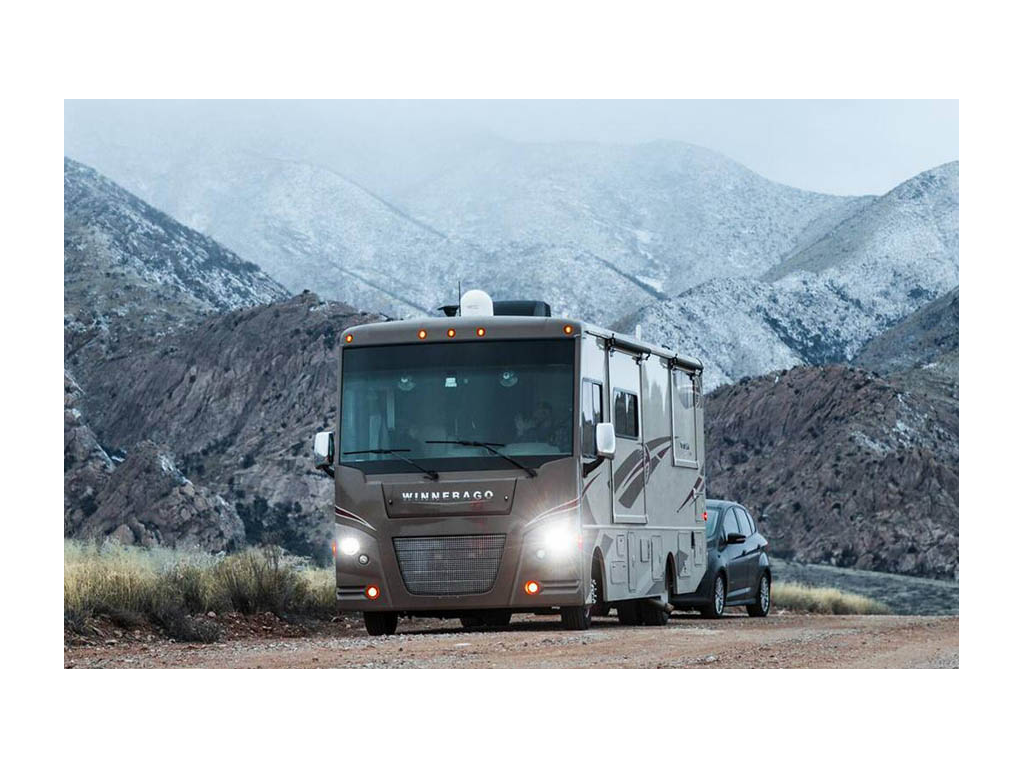
Photo of our Winnebago Vista by Jon Bajuelo.
I’ve read that the average RVer only travels 5,000 miles a year. That means a gas engine should last you 40 years. So we believe our RV will last as long as we need it to since we are planning to change our RV in the next four years or so to take advantage of all the benefits of the latest and greatest technology upgrades that Winnebago is putting into their RVs.
Final Thoughts for RV Purchases
When Sabrina and I were shopping for our RV, we tried our best to shop the same way we would for anything else. We determined how we would travel, where we would be staying, and what activities we would want to be able to do. It is of course fun to buy what you want, but we feel buying what you need is the smarter way to go. We discuss this a little further in our video about this decision.
Leave a Comment to Help Other Readers
I come back and visit our articles often and would love to read about your RV purchases and why you bought the particular model you did. So, if you could leave a comment about your stories and experiences that would be great as this could very well help the next reader.
We hope you enjoyed this article and we wish you safe travels!
Comments
Comments on this post are moderated, so they will not appear instantly. All relevant questions and helpful notes are welcome! If you have a service inquiry or question related to your RV, please reach out to the customer care team directly using the phone numbers or contact form on this page .